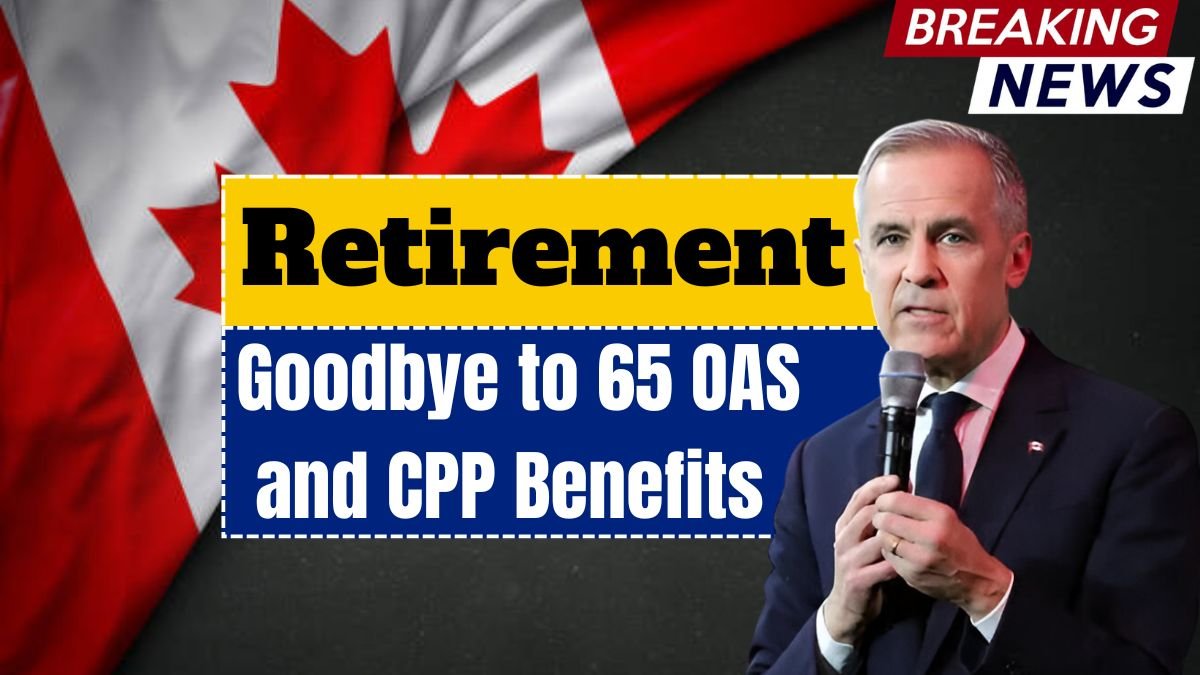For generations, the golden milestone for Canadians has been retiring at 65
It’s the age we’ve all been taught to aim for, the finish line where you finally get to access your hard-earned pension and enjoy life after work. But a major shift is underway, and there’s a growing buzz about a potential Canada Retirement Rules Change that could redefine this timeline.
While headlines are swirling with rumors about the government pushing the retirement age to 67, the reality is a bit more complex. What’s clear is that the ground is shifting beneath our feet. This isn’t just a minor policy tweak; it’s a fundamental rethinking of what retirement looks like, and understanding this potential Canada Retirement Rules Change is crucial for your financial future.
Canada Retirement Rules Change
The conversation around the Canada Retirement Rules Change is heating up, largely driven by economic realities and our country’s changing demographics. With Canadians living longer and the cost of living on the rise, the traditional notion of a clean break from the workforce at 65 is becoming a thing of the past for many.
This isn’t necessarily about a sudden, mandatory age hike from the government. Instead, it’s a reflection of a new social and financial landscape.
The existing pension systems, the Canada Pension Plan (CPP) and Old Age Security (OAS), already have built-in flexibility that many people overlook. Understanding how to leverage these options is the key to navigating this new era of retirement planning successfully.
Canada Retirement Rules Change Overview
Canada Pension Plan (CPP) vs. Old Age Security (OAS)
| Overview | Canada Pension Plan (CPP) | Old Age Security (OAS) |
|---|---|---|
| Eligibility Age | Flexible start from age 60 (reduced benefit) to 70 (increased benefit), with 65 as the standard age. | 65 years or older. |
| Funding Source | Based on contributions made by employees, employers, and the self-employed during their working years. | Funded from the federal government’s general tax revenues. |
| Maximum Monthly Benefit | ~$1,433 for new recipients at age 65. | ~$734.95 (age 65–74) and ~$808.45 (age 75+). |
| Deferral Bonus | Deferring past age 65 increases the pension by 0.7% per month, up to a 42% boost at age 70. | Deferring past age 65 increases the pension by 0.6% per month, up to a 36% boost at age 70. |
| Inflation Adjustment | Adjusted annually every January based on the Consumer Price Index (CPI). | Adjusted quarterly (January, April, July, October) based on the CPI. |
| Taxable? | Yes. | Yes, and subject to a recovery tax (“clawback”) if annual income exceeds a certain threshold. |
The “Retire at 67” Rumor: Fact vs. Fiction
You’ve probably seen the headlines causing alarm: “Is Canada raising the retirement age to 67?” It’s a recurring story, and it’s back in the spotlight for a couple of big reasons:
- Population is aging – The last of the baby boomers are hitting retirement age, putting predictable strain on public pension funds.
- Longer life expectancy – Canadians are living longer, healthier lives, which means pension payments need to stretch further.
However, as of late 2025, the government has not passed any law to officially raise the retirement age for OAS or CPP.
Previous governments have floated the idea, only to retract it. Any official Canada Retirement Rules Change of this magnitude would require significant lead time and public discourse—not an overnight switch.
For now, the power to decide your retirement age still rests largely with you.
Understanding the Canada Pension Plan (CPP) in 2025
Think of the CPP as your personal retirement savings account that you’ve paid into throughout your career. It’s not a flat benefit; what you get out is directly tied to what you put in.
CPP Enhancements
- The CPP is undergoing a major enhancement that began in 2019.
- The original CPP replaced about 25% of average work earnings.
- The enhanced CPP will boost that replacement rate to 33%.
- Funded by gradually increased contributions from both employees and employers.
Unparalleled Flexibility
The “standard” age to take CPP is 65, but you have options:
- Starting Early (Age 60):
- Access your CPP pension as early as 60.
- Permanent reduction of 0.6% per month before 65.
- Starting at 60 means a 36% cut to monthly payments.
- Starting Late (Age 70):
- Payments increase by 0.7% per month after 65.
- At 70, your pension is 42% larger than at 65.
- Ideal for those who can afford to wait for maximum lifetime income.
Demystifying Old Age Security (OAS) in 2025
OAS is different from CPP—it’s funded from general tax revenues and provides income support even if you’ve never worked.
Eligibility and Payments
- Available at 65+ years old with Canadian residency requirements.
- Since 2022, older seniors (75+) receive 10% higher benefits.
- Ages 65–74: ~$735 monthly.
- Ages 75+: ~$800+ monthly.
The Deferral Option
- Delay OAS up to age 70.
- Increases by 0.6% per month deferred.
- Waiting until 70 boosts payments by 36% permanently.
The Real Reasons Retirement Is Transforming
Even without official rule changes, Canadians are redefining retirement:
- Rising Cost of Living – Inflation makes savings feel inadequate, pushing many to work longer.
- A New Vision of Retirement – Instead of fully retiring, many shift to part-time work, passion projects, or entrepreneurship.
- Higher Financial Targets – The amount needed to feel financially secure in retirement has skyrocketed.
The real Canada Retirement Rules Change isn’t about government mandates—it’s about a shift in mindset. Canadians are using the flexibility of CPP and OAS to design retirement on their own terms.
Final Thoughts
The Canada Retirement Rules Change is less about a fixed age and more about choices, flexibility, and adapting to new realities.
Retirement at 65 may no longer be the “default,” but that doesn’t mean Canadians are powerless. By understanding and strategically using CPP and OAS options, you can take control of your retirement journey—whether you step back at 60, 65, 67, or even 70.
The future of retirement isn’t just about when you stop working—it’s about how you design the life you want to live afterward.
FAQs
Q1. Is Canada officially raising the retirement age from 65 to 67?
A. As of 2025, there is no official law changing the retirement age to 67. However, discussions are ongoing due to rising life expectancy and pension sustainability.
Q2. Can I still take CPP before age 65 under the new retirement rules?
A. Yes, you can start CPP as early as age 60 with reduced payments, or delay until age 70 for higher benefits, regardless of rule changes.
Q3. How do OAS payments change if I defer them past age 65?
A. If you defer OAS up to age 70, your payments increase by 0.6% per month, giving you a permanent boost of up to 36%.


